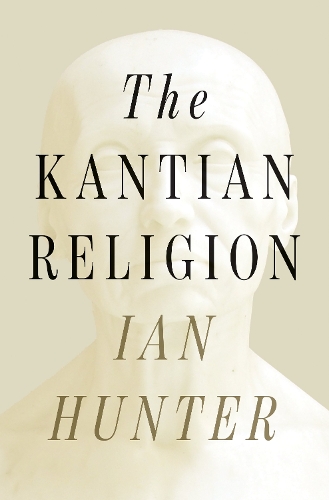
The Kantian Religion
(Hardback)
Publishing Details
The Kantian Religion
By (Author) Ian Hunter
Princeton University Press
Princeton University Press
29th July 2026
United States
Classifications
General
Non Fiction
Western philosophy: Enlightenment
Ethics and moral philosophy
Physical Properties
Hardback
504
Width 156mm, Height 235mm
Description
A historical inquiry into Kantian philosophy as a form of philosophical religion
Kantian philosophy is typically viewed as providing a universal theory of knowledge and morality based on timeless principles retrieved from the human mind. In The Kantian Religion, Ian Hunter offers a starkly different account. Hunter contends that Kant's arguments were assembled from purely historical sources and served as ascetic devices for crafting the towering self of the Kantian philosopher; they were exercises in intellectual self-clarification and moral transformation undertaken by a cohort of the philosophically educated in search of spiritual clarity and moral purity. These "solemn rites of the mind" were seen as heir and rival to the regenerative resources and cultural importance of the Christian religion, and Kantianism was characterized as a philosophical religion.
Hunter describes the ways that elite spiritual athletes performed a series of philosophically strenuous "acts of the self on the self" through Kant's intellectual exercises. When Kantianism emerged as an insurgent cultural movement in the 1780s, it offered young academics training to be clergy and teachers a philosophy that was powerful enough to supplant Christian spirituality and to subordinate humanist scholarship and the natural sciences to philosophical self-reflection. For Kant and his followers, the religious disposition of Kantian philosophy came solely from the immanent practice of the philosophy itself. As a rival to conventional religion and as an academic interloper, Kantian philosophy unleashed a wave of conflicts in Germany's ecclesiastical and scholarly cultures. Although recent Kant commentary typically views Kantianism as intrinsically secular and scientific, Hunter argues provocatively that Kant's contemporaries viewed his philosophy as an extra-ecclesiastical path to spiritual refinement and moral regeneration.
Author Bio
Ian Hunter is emeritus professor in the Faculty of Humanities and Social Sciences at the University of Queensland. He is the author of Rival Enlightenments and The Secularization of the Confessional State and coeditor of The Cambridge Companion to Pufendorf. His article "Kant and Vattel in Context" won the John Burrow Prize for best article in the journal History of European Ideas in 2013.
